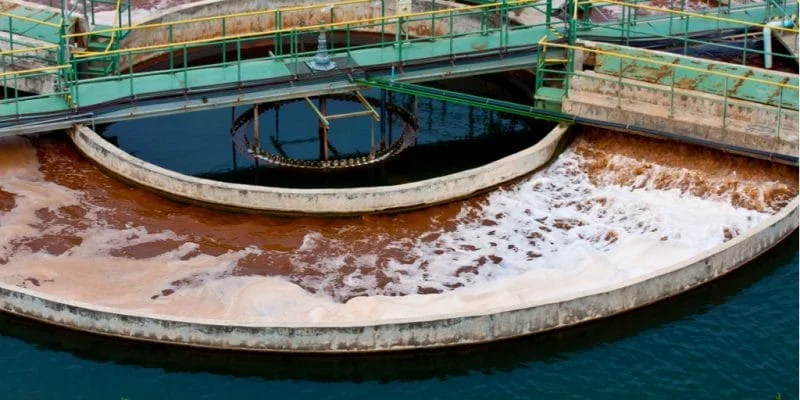- This topic is empty.
-
AuthorPosts
-
2025-10-27 at 2:51 pm #5383
With the accelerating pace of industrialization, water resource scarcity and environmental pollution are becoming increasingly serious. Industrial wastewater often contains suspended solids, organic pollutants, heavy metals, and other harmful substances. If discharged directly without treatment, it not only damages the ecological environment but also increases legal risks and financial burdens for businesses. The importance of industrial wastewater treatment cannot be underestimated; it is a core component of achieving green production, resource recycling, and sustainable development.
1. Sources and Hazards of Industrial Wastewater
Industrial wastewater primarily originates from production processes in the chemical, metallurgical, power, papermaking, food processing, and printing and dyeing industries. Its main characteristics include:
Diverse Pollutant Types: Wastewater may contain complex components such as suspended solids, dissolved organic matter, heavy metal ions, oils and fats, and microorganisms.
Volatile Water Quality: The instability of the production process causes significant fluctuations in wastewater quality, with indicators such as COD (chemical oxygen demand), BOD (biochemical oxygen demand), and pH levels frequently fluctuating.
High Environmental Risks: Discharging untreated industrial wastewater can lead to eutrophication, soil contamination, and even impact groundwater safety, disrupting the ecological balance. Economic Impact on Enterprises: Improper wastewater treatment can lead to equipment scaling and corrosion, increasing maintenance costs and potentially leading to environmental fines and legal liability.
Therefore, industrial wastewater treatment is not only a crucial component of corporate environmental management but also an essential requirement for achieving a win-win situation in both economic efficiency and social responsibility.

2. Objectives of Industrial Wastewater Treatment
The primary goal of industrial wastewater treatment is to reduce pollutants in wastewater to safe levels suitable for discharge or recycling through advanced treatment technologies, while also achieving rational utilization of water resources and reducing enterprise costs. Core objectives include:
Removal of suspended solids and particulate matter: Ensures the normal operation of industrial circulating water systems and production equipment, preventing scaling and blockage.
Reducing organic pollutant concentrations: Reduces COD, BOD, and other indicators through chemical or biological treatment to prevent eutrophication.
Removal of heavy metals and harmful ions: Ensures that wastewater discharge meets national and local environmental standards and avoids long-term damage to the ecological environment.
Recycling of water resources: Increases the reuse rate of industrial wastewater, reduces fresh water consumption, and lowers enterprise water costs. Ensuring safe equipment operation: Purified water reduces scaling and corrosion in pipes, cooling towers, and heat exchangers, extending equipment life.
3. The Role of Industrial Water Purification Systems in Wastewater Treatment
Industrial water purification systems are core equipment for treating reclaimed and wastewater in modern industrial enterprises. They utilize a variety of physical, chemical, and biological techniques to remove suspended solids, organic pollutants, heavy metal ions, and other harmful substances from industrial wastewater, enabling water reuse or discharge that meets standards.
3.1 Core Functions
Efficient Water Purification: Filtering, sedimentation, and oxidation processes are used to remove pollutants from wastewater.
Recycling Industrial Water: Treated water can be used for cooling, cleaning, and process water, reducing fresh water consumption.
Reducing Equipment Wear: Purified water reduces scaling in pipes and heat exchangers, extending equipment life.
Environmental Compliance: Ensures that wastewater discharge meets national and local environmental regulations and standards, mitigating environmental risks for enterprises.
3.2 Technical Advantages
Modern industrial water purification systems, combined with intelligent control and automated management, enable online water quality monitoring, automatic adjustment of filtration parameters, and remote alarm functions, ensuring stable system operation under high-load conditions. This not only improves treatment efficiency but also reduces operating and management costs for enterprises.
3.3 Practical Application Cases
Chemical Industry: Removal of suspended solids from circulating water reduces scaling on boilers and heat exchangers, improving thermal efficiency.
Power Industry: Purified cooling water extends the service life of cooling towers and pipelines, reducing maintenance costs.
Food and Beverage Industry: Removal of impurities from wastewater enables clean production and wastewater reuse.
Papermaking and Dyeing Industry: Efficient removal of suspended solids and pigments reduces fresh water consumption and saves production costs.
4. Future Development Trends
With industrial enterprises placing increasing emphasis on green production and sustainable development, industrial wastewater treatment technology is exhibiting the following trends:
Intelligent Control: Leveraging the Internet of Things, big data, and artificial intelligence to achieve real-time monitoring and automatic adjustment of the wastewater treatment process.
Combining Energy Saving and Efficiency: Optimizing the design of industrial circulating water filtration systems to reduce energy consumption and improve wastewater treatment efficiency. Modularity and Customization: Modular systems are designed for different industrial sectors and wastewater types, facilitating installation and expansion.
Multi-Technology Composite Application: Combining physical filtration, chemical treatment, and biological treatment improves wastewater treatment quality and meets stringent emission standards.
5. Conclusion
Industrial wastewater treatment is a key component of green development and sustainable operations for businesses. Advanced industrial circulating water filtration systems not only effectively remove suspended solids and hazardous substances from wastewater, but also enable recycled water utilization, reducing fresh water consumption and extending equipment life.
In the future, with technological advancements and intelligent upgrades, industrial wastewater treatment systems will become even more efficient, energy-efficient, and environmentally friendly, helping businesses achieve resource recycling and sustainable development goals. Businesses should scientifically select and rationally deploy industrial water purification and circulating water filtration systems based on wastewater characteristics, production processes, and water requirements to ensure long-term, stable operation and safeguard a sustainable future.
Jinhua specializes in the sale of industrial water treatment systems and is committed to providing efficient and reliable wastewater treatment solutions for various industrial enterprises. Whether in the chemical, power, food, papermaking or metallurgical industries, Jinhua's wastewater treatment equipment can help companies achieve environmental compliance and sustainable development goals.
http://www.jinhuacn.com
jinhuacn -
AuthorPosts
- You must be logged in to reply to this topic.